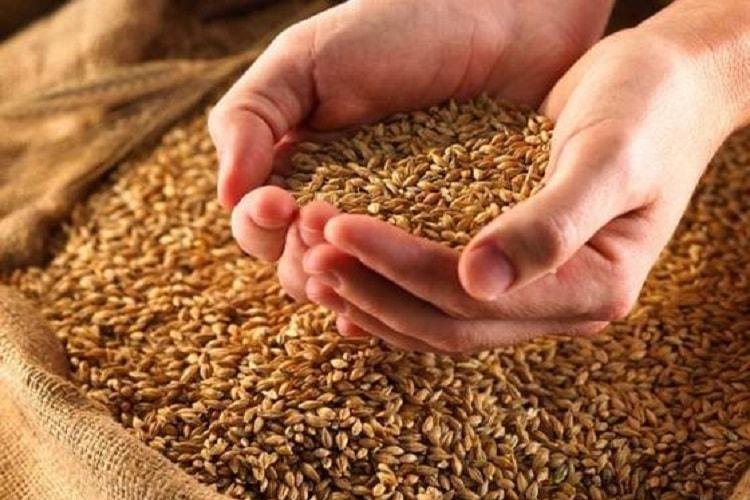Activists Vouch for Universalisation of Food Entitlements After Data Show Foodgrain Reached Only 13% of Migrant Workers

Image Courtesy: The News Minute
Days after activists and civil society groups decried the non-extension of free food grain scheme for returning migrant workers, government data pertaining to the same has revealed glaring inefficiencies in the distribution in the past two months—the period for which the scheme was announced.
Out of the total eight lakh metric tonnes of free food grains allocated under the Atmanirbhar Bharat package—meant to benefit eight crore migrant workers for two months, as announced by Finance Minister Nirmala Sitharaman—only 13% could actually reach the beneficiaries in May and June, as per the data available with the Ministry of Consumer Affairs, Food and Public Distribution.
The numbers show that several states, at least 26 out of 36 states and union territories, failed in distributing—despite having lifted their full two months’ quota—the grains to the returning workers worst hit by the coronavirus-triggered lockdown.
For the migrant workers who are not covered under any Central or state food distribution system, 5 kg free grains per person and 1 kg chana per family for the May and June was announced.
These allocations were made in addition to the extra free monthly ration to be distributed via the public distribution system (PDS) under the National Food Security Act, covering almost 81 crore people.
However, now as the data have revealed, only 2.13 crore migrant workers received food assistance under the scheme, according to The Indian Express report, which amounts to a drop in the ocean.
Food rights activists and academics have blamed the Centre for the “flawed processes” that could have been “easily averted”.
Dipa Sinha of Right to Food Campaign said that the main issue here was of the “identification” of the beneficiary, which was conveniently left by the Centre to the individual states to handle.
“The scheme was announced and the allocations were made; however, this was not enough, as the states then met with an immediate problem of identifying the migrant workers. With no concrete system available, each state then made attempts first to identify the beneficiaries, which added to their difficulties,” she told NewsClick.
This further hampered the distribution process as was also revealed by the government's own data, Sinha added. “Right now, even we [activists] don’t know of the several criteria through which different states chose to select the beneficiaries; to expect from a migrant worker to comply with this bureaucratic layer is too much to ask.”
Ranjendran Narayanan, assistant professor at the Azim Premji University, seemed to echo this view. “Most of the migrant workers have not been registered—be it construction workers, street vendors or others. Any scheme for such a section shouldn’t have any criteria of limit,” he said.
The government data, now released, are very “reasonable” as most of the workers couldn’t have proved that they were ‘migrants’ in the first place to receive the assistance, Narayanan added, who has been also associated with Stranded Workers Action Network (SWAN) – a volunteers’ network catering to distress calls from stranded workers.
Both, instead, called for a “universalisation” of the food distribution system in the wake of the lockdown-linked distress—a demand also put forth earlier by other food rights activists as well.
“In case of universalisation of rationing—that is to say, everyone who is in need will be eligible for the assistance—the beneficiaries would have been self-selected out of the total population,” said Narayanan, admitting that such a number of beneficiaries would be large, food can be easily made available to them “given the huge buffer stocks lying with the government”.
Similarly, Sinha also suggested an easier way of distributing the ration, that is, “to provide it to everyone who is hungry and is in need of it.” According to her, the potential challenges in the distribution of food grains to migrant workers could have been “averted” with more “transparency” and “better coordination between the centre and the states”.
On Wednesday, Food Minister Ram Vilas Paswan appealed to the states to speed up the distribution of the free food grains and pulses, acknowledging that there was enough food grains with the Centre to meet the demands.
Some states have also failed in lifting the whole quota of food grains allocated to them, government data suggested. For example, Madhya Pradesh only lifted 4% of the total allocation, while Chhattisgarh only lifted 5%.
“This could be possible because states would still be distributing from the food grains that they had lifted earlier, leaving no room for further collection,” Sinha explained. “The data reveals inefficiency in the distribution process; however, state-wise explanations for this would vary and that must be studied properly,” she said.
Meanwhile, Prime Minister Narendra Modi in his speech on Tuesday spoke about extension of additional food assistance under Pradhan Mantri Garib Kalyan Yojana (PMGKY), but made no mention of migrant workers, suggesting that benefits again are to be restricted to only those who carry ration cards.
“This leaves out huge sections of population who are still trying to cope with the shocks of the lockdown,” Narayanan said. He further demanded that the governmet provide cash assistance and expand the ambit of the rural employment guarantee scheme to tide over the crisis.
Also read: Why Smart Cities Are No Answer to Covid-19
Get the latest reports & analysis with people's perspective on Protests, movements & deep analytical videos, discussions of the current affairs in your Telegram app. Subscribe to NewsClick's Telegram channel & get Real-Time updates on stories, as they get published on our website.
























